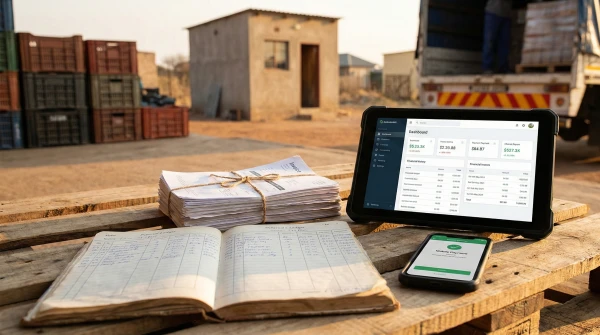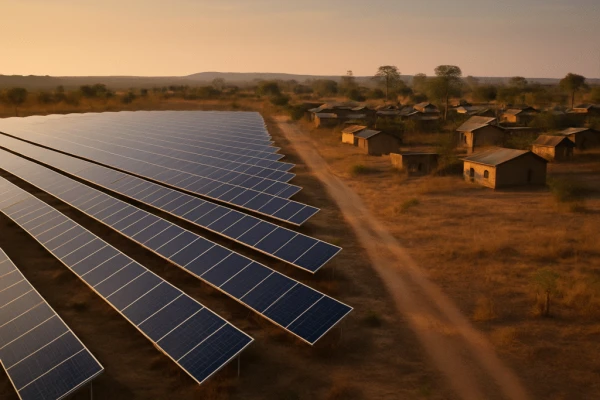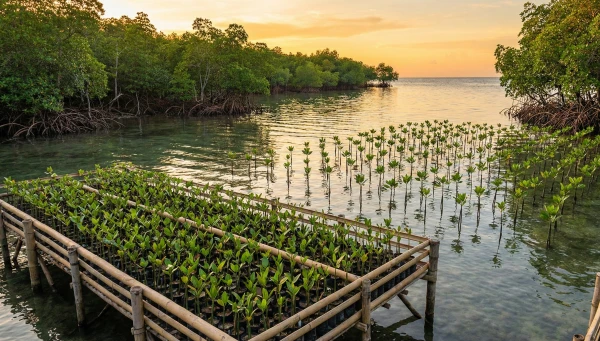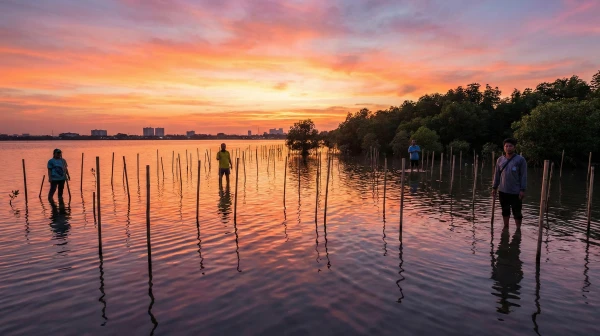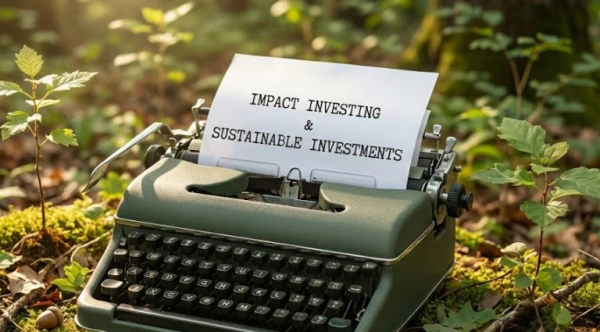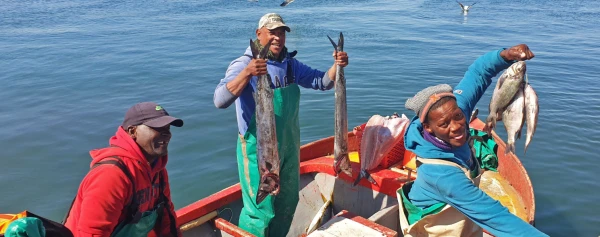Our Views
Strengthening Startup Ecosystems in Francophone Africa
Across Francophone Africa, entrepreneurship is gaining visibility as a driver of jobs, innovation and economic resilience. From Dakar to Abidjan and Cotonou, a new generation of founders is building digital platforms, creative brands and impact ventures that respond to local realities while connecting to global markets.
In recent years, several governments have started to back this momentum with new policies and Startup Acts. Tunisia was the first African country to adopt such a law in 2018, followed by Senegal in 2020, while countries such as Côte d’Ivoire, Togo and Benin are now in the process of developing their own frameworks.
Yet, despite these positive signals, many startup ecosystems in Francophone Africa remain fragmented and under-resourced. Innovation support structures often operate in silos, access to finance is limited, and the pipeline of investment-ready startups is still thin. Strengthening these ecosystems is not just about supporting entrepreneurs; it is about building the infrastructure for long-term, inclusive growth.
Why Startup Ecosystems Matter for Francophone Africa
Francophone African economies face a common set of challenges: high youth unemployment, informality, exposure to climate and commodity shocks, and a need to diversify beyond traditional sectors. Well-functioning startup ecosystems can help address several of these issues at once:
- Job creation and skills development, especially for young people and women.
- Digitalisation of traditional sectors, from agriculture to finance and tourism.
- Greater economic resilience, as new business models reduce dependency on a few large industries.
However, research on innovation hubs in West Africa shows that the ecosystem is often “dynamic but fragmented”, with weak links between research institutions, incubators, entrepreneurs and the private sector. Many support structures lack stable funding, clear positioning and strong connections to markets and investors.
For donors, development finance institutions and governments, the question is not whether to support startups, but how to do so in a way that is systemic, locally grounded and scalable.
1. From Isolated Initiatives to Coherent Policy Frameworks
A first priority is to move from scattered projects to integrated policy frameworks. Startup Acts, entrepreneurship strategies and digital transformation policies provide a backbone for ecosystem development – but only if they are coordinated and implemented with clear roles for public and private actors.
The current wave of Startup Acts across Africa is an important step, but many frameworks are still young and require alignment with tax regimes, investment policies, education systems and public procurement rules.
At Aninver, we see that this alignment is critical in our broader work with governments and development partners. Our advisory projects in Côte d’Ivoire, Benin and Togo, for example, have involved stakeholder and political economy analysis to understand how policies, institutions and incentives interact on the ground. Such diagnostics help ensure that any support to startups fits within a realistic reform path, rather than adding another layer of uncoordinated initiatives.
For Francophone Africa, strong policy foundations should:
- Clarify the role of the state as an enabler, not a competitor.
- Provide predictable rules for early-stage investment and innovation.
- Embed entrepreneurship in national development and digital strategies.
2. Strengthening Entrepreneur Support Organisations and Digital Platforms
Startups do not grow in isolation; they are nurtured by Entrepreneurship Support Organisations (ESOs) such as incubators, accelerators, hubs and innovation labs. In many Francophone countries, these organisations are passionate but under-funded and overstretched. Improving their capacity, business models and coordination can have an outsized impact on the ecosystem.
Our work on the Thuma Mina youth entrepreneurship platform in Southern Africa is a useful reference. The program, inspired by the Souk At-Tanmia initiative in North Africa, was designed to address fragmentation by combining a regional web and mobile portal with tailored technical assistance and blended finance for youth-led SMEs. The platform acted as a “one-stop entry point” for entrepreneurs, connecting them to mentoring, business development services, and funding opportunities, and ultimately supported around 600 young entrepreneurs, half of them women.
A similar logic can be applied in Francophone West and Central Africa:
- Digital platforms can map support offers, simplify application processes and expand reach beyond capital cities.
- ESOs can specialise (e.g. in fintech, climate tech, creative industries) while collaborating through shared standards and joint programs.
- Data from these platforms can inform policy and funding decisions.
In The Gambia, we are currently designing a national program to strengthen digital entrepreneurship through better ESOs – focusing on diagnostics, capacity building and inclusive program design. The methodology we use there – ecosystem mapping, co-creation with local actors, and a clear implementation roadmap – is directly relevant to Francophone ecosystems facing similar challenges of fragmentation and unequal access.
3. Unlocking Access to Finance with Smarter Instruments
Access to finance remains one of the most cited constraints for startups in Francophone Africa. Beyond the lack of venture capital, many entrepreneurs struggle with basic working capital, long payment cycles and limited collateral.
Addressing this requires a mix of targeted public instruments, innovative financial products and better intermediation:
- Public and blended funds that de-risk early-stage investment.
- Guarantees and co-investment schemes with local financial institutions.
- Fintech solutions that ease cash-flow constraints for SMEs.
In Côte d’Ivoire, our assessment of Digital Receivables Financing (DRF) explored how digital tools can unlock liquidity for SMEs by turning unpaid invoices into financeable assets. The project highlighted how receivables-based products, supported by appropriate regulation and technology, can strengthen entrepreneurship and SME development in a Francophone financial system.
Likewise, the Fashionomics Africa Initiative, where we helped design and manage a digital marketplace for fashion entrepreneurs across countries including Ivory Coast, shows how sector-specific platforms can combine e-commerce, visibility and business support to make creative SMEs more bankable.
For ecosystem builders in Francophone Africa, the lesson is clear: access to finance is not only about more capital, but also about better-designed instruments and data-driven products that reflect how startups actually operate.
4. Investing in Skills, Inclusion and Regional Connectivity
Strong startup ecosystems depend on people: founders, product builders, mentors, investors and ecosystem managers. In many Francophone countries, the talent is there, but opportunities to build market-relevant skills and networks remain uneven.
Three areas are especially important:
- Entrepreneurial and digital skills for young people and professionals transitioning from traditional sectors.
- Inclusion of women and underserved groups, who often face additional barriers to finance, networks and visibility.
- Regional connectivity, so that entrepreneurs in Dakar, Abidjan, Cotonou, Douala or Niamey can learn from each other and access cross-border markets.
Initiatives like Fashionomics Africa explicitly focus on women and youth in the textile and fashion value chain, combining training, digital tools and market access to support thousands of entrepreneurs across Francophone and Anglophone countries.
Our recent work designing digital entrepreneurship and skills programs in countries such as The Gambia also emphasizes inclusion – for example, by tailoring support to women entrepreneurs and people with disabilities, and by strengthening ESOs outside capital cities. These principles are equally relevant for Francophone ecosystems, where geography, gender and language can all influence who gets access to opportunities.
How We Work with Startup Ecosystems in Francophone Africa
At Aninver, we approach startup ecosystems as systems, not standalone projects. Our experience in Francophone Africa spans:
Digital and creative industry platforms such as Fashionomics Africa, supporting SMEs in Ivory Coast and other countries to grow through technology, market access and capacity building.
Advisory work in countries like Côte d’Ivoire, Benin, Senegal and Togo, where we have analysed private sector dynamics, digital finance solutions and institutional frameworks that shape the environment for entrepreneurs.
Ecosystem-level programs, such as our current assignment to strengthen the digital entrepreneurship ecosystem in The Gambia, which provides a replicable model for mapping ESOs, designing national programs and embedding inclusion.
Across these engagements, we combine policy analysis, ecosystem design, digital solutions and practical implementation roadmaps. The goal is always the same: help partners move from isolated initiatives to coherent, investable ecosystems that can support thousands of entrepreneurs over time.
Continuing the Conversation
Strengthening startup ecosystems in Francophone Africa is a long-term effort. It requires committed governments, patient development partners, active private investors and strong local intermediaries. But the payoff is significant: more resilient economies, better jobs for young people and a stronger base of home-grown innovation.
If you’re interested in how we work with governments, DFIs and ecosystem actors on entrepreneurship and innovation, we invite you to explore more of our insights and project stories on private sector development, digital solutions and creative industries and reach out to discuss how we can support your next initiative.


